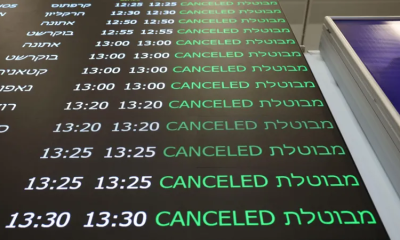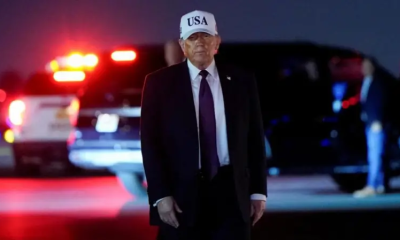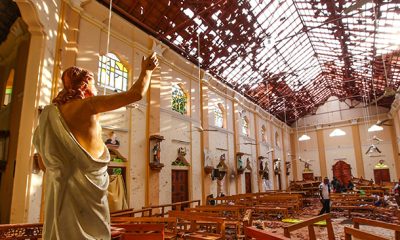News
Lankan cultural melting pot presented at London celebration Independence Day
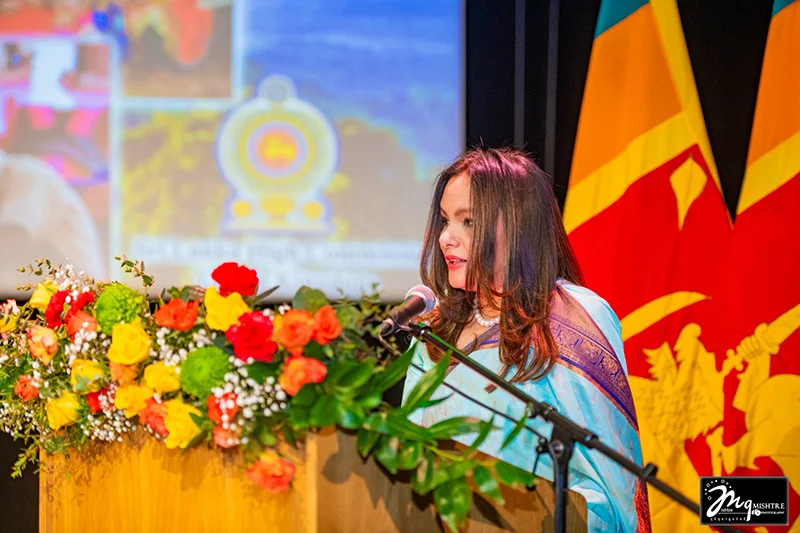
By Sujeeva Nivunhella
reporting from London
For the first time in London, the Sri Lankan High Commission hosted a special reception dedicated to community engagement in celebration of the nation’s 77th Independence Anniversary. The event, held at the Sarah Siddons Theatre at the City of Westminster College’s Paddington Green Campus, brought together over 350 members of the Sri Lankan community, friends of Sri Lanka, and well-wishers.
The reception featured a vibrant cultural segment, showcasing Sri Lanka’s rich artistic traditions. It began with a traditional Kandyan dance performed by the Kandyan Dancers Company, followed by a Bharathanatyam performance by Branava Nartanalaya. The Rupavahini Muthuhara Children’s Society UK 2515 captivated the audience with a series of songs, while a fusion dance performance brought together elements of both Kandyan and Bharathanatyam styles, symbolising unity in diversity.
Interspersed between performances were speeches from prominent community leaders, including Dr. Mohan Siriwardena (Buddhist community), Kanagaratnam Rajamenon (Hindu community), Shakeer Nawas (Islamic community), and Dr. Roshan Jayalath (Christian community). Each speaker reflected on the contributions of the Sri Lankan diaspora and the importance of fostering unity and harmony within the community.
In her keynote address, the Acting High Commissioner Manori Mallikarachchi emphasized this year’s Independence theme, ‘Towards a National Renaissance,’ highlighting the resilience of the Sri Lankan people and the nation’s journey through historical struggles toward independence. She underscored the government’s commitment to transparency, economic transformation, and sustainable development, while also calling upon the Sri Lankan diaspora to actively contribute to the nation’s progress.
“The story of Sri Lanka’s independence is one of resilience and hope. As we mark our 77th year, we do so with a renewed sense of purpose,” she stated, acknowledging the role of key historical figures such as Gongalegoda Banda, Veera Puran Appu, Anagarika Dharmapala, Arumugar Navalar, and C.W.W. Kannangara in shaping the nation’s identity and independence movement.
Reflecting on the nation’s post-independence journey, the Acting High Commissioner addressed the challenges Sri Lanka has faced, including the prolonged civil conflict and the economic crisis of 2022. She commended the resilience of the people and expressed confidence in the leadership of President Dissanayake, whose policies emphasize transparency, accountability, and inclusive development.
She highlighted key governmental initiatives such as the Support to Selected Anti-Corruption Initiatives Project and the ‘Clean Sri Lanka’ initiative, launched on 01 Jan., 2025. “‘Clean Sri Lanka’ is not just a campaign but a movement that embodies the essence of a National Renaissance,” she said, urging the community to support the initiative and contribute to creating a cleaner, more ethical society.
This reception marked the first time the Sri Lanka High Commission in London has hosted an event solely focused on community engagement. The event’s success was made possible through the generous sponsorship of Sri Lankan Tamil-owned enterprises such as Regent Group UK, Leaf Hotels Group, Sky Wings, Bala Letting, and Home Care Group, along with Bank of Ceylon, De La Rue, and Capital Metals.
“The collaboration between public and private sectors is vital in strengthening community ties and supporting initiatives that celebrate our shared heritage,” the Acting High Commissioner emphasized.
As Sri Lanka moves forward, the government’s vision is centred on economic transformation, inclusive innovation, and sustainable development. “Empowering marginalized communities and fostering technological advancements are at the heart of our nation’s progress,” she stated, encouraging the diaspora to play an active role in Sri Lanka’s recovery and growth.
In closing, the Acting High Commissioner reiterated the significance of unity and resilience. “As we celebrate 77 years of Independence, let us honour the sacrifices of the past and commit to building a future that reflects the ideals of a Thriving Nation, Beautiful Life.”

News
Renewed Lanka’s Easter Bombing probe puts NTJ’s South India radicalisation network back under lens
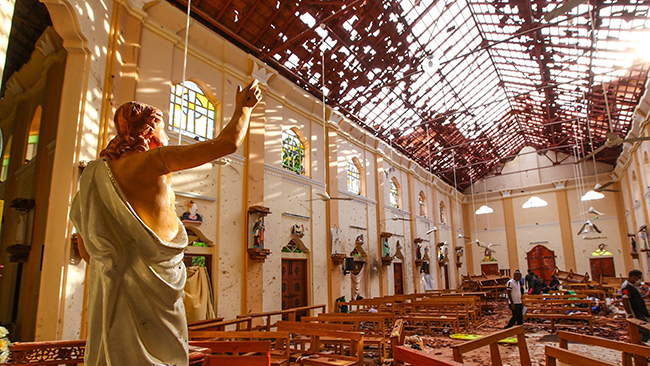
New Delhi (IANS):The arrest of Sri Lanka’s former Intelligence chief, Retired Major-General Suresh Sallay is a turning point in the investigations into the 2019 Easter Sunday bombings that killed 279 people.
The move was a bold one taken by President Anura Kumara Dissanayake who won the presidency in 2024.
He had promised that all persons involved in the attack would be brought to justice.
Sallay was made State Intelligence Service (SIS) chief in 2019 after Gotabaya Rajapaksa became President.
The allegation against Sallay was that he had permitted the attack to take place with the intention of influencing that year’s presidential election, which was eventually won by Rajapaksa.
Sallay had become a prominent figure in Sri Lanka and was widely credited with dismantling the LTTE. His arrest has led to a political storm and many state that it could revive tensions relating to the LTTE.
Ali Sabry, former Sri Lankan Minister for Foreign Affairs said that the developments are deeply troubling.
An Indian official said that the developments in Sri Lanka are being monitored closely.
On the question whether the LTTE issue would come back into the picture following the arrest of Sallay, the officer said that attempts are being made, but it would be very tough.
There have been several cases that the National Investigation Agency (NIA) has been probing concerning the revival of the LTTE.
The ISI, too, has tried its hand in ensuring the revival of the LTTE, but has not been successful so far.
To prevent the revival of the LTTE, both India and Sri Lanka have been working very closely.
Another official explained that the current ties with Sri Lanka have gone from ideological to an investment-led partnership.
Prime Minister Narendra Modi and President Dissanayake share a pragmatic relationship and this has gone a long way in ensuring cooperation on all fields including security, the official explained.
While some in Sri Lanka do not subscribe to Dissanayake’s decision on Sallay, the fact is that the Easter Bombing case has to be probed from every possible angle.
An Intelligence Bureau official says that a major concern today are the activities of the National Thowheeth Jama’ath (NTJ) and Jamathei Millathu Ibrahim (JMI), the two outfits responsible for this attack.
The NTJ in particular has a vast presence in South India and has managed to radicalise a large number of youth in Tamil Nadu and Kerala.
The mastermind of the attack, Mohammad Zahran Hashim was a frequent visitor to Tamil Nadu. He was also responsible for the radicalisation of Jamesha Mubeen who carried out an unsuccessful attempt to bomb a temple in Coimbatore in 2022.
The Indian agencies have been actively pursuing the role played by Hashim. A probe by the NIA in the South India radicalisation case revealed that the entire plot was being run by Hashim from Sri Lanka.
At least 50 of the 100 radicalisation videos seized by the agency were discourses by Hashim, who had close links with the Islamic State.
Officials say that Sallay could provide details to investigators about the module that Hashim ran.
This would come in handy for the Indian agencies who are probing cases directly linked to the NTJ in South India.
Hashim, who was the ring leader for the suicide bombers during the Easter Bombing had spent a considerable amount of time in India.
The Indian agencies would want to learn if any of the locals that Hashim interacted with had any idea about the Easter Bombings.
While in India, Hashim had focussed his radicalisation programmes mainly at Mallapuram, Coimbatore, Nagapattinam, Kanyakumari, Ramnathpuram, Vellore, Trichy and Thirunelveli, the NIA probe found.
Pallay has for now denied any links to the Easter Bombings.
Indian officials say that they do not want to comment on Pallay and his alleged links.However, it is important that the bombings are probed thoroughly since the activities of the NTJ have a direct bearing on India, particularly the southern states, the official also added.
News
Sajith warns: Don’t let trade union action stall cyclone relief
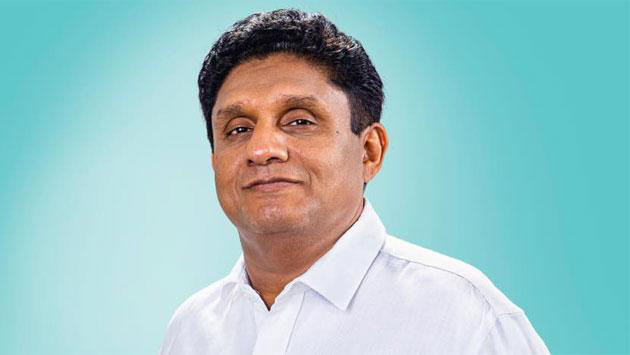
Opposition and SJB Leader Sajith Premadasa on Friday stressed that relief efforts for communities affected by Cyclone Ditwah must not be derailed by internal disputes, as several trade unions announced plans to withdraw from disaster relief duties.
Taking to ‘X’, Premadasa called on the Government to prioritise coordination and ensure uninterrupted assistance to families still awaiting aid.
“The Government must work closely with officers on the ground to ensure coordination and uninterrupted support. When families are still waiting, how can we allow for this confusion?” he questioned, emphasising that relief measures should not be delayed under any circumstances.
His remarks follow the decision by several trade unions representing Government officers engaged in disaster relief operations to launch trade union action beginning from Friday (27 February).
The unions announced their withdrawal from relief-related duties, citing unresolved issues affecting officers involved in post-disaster operations.
According to the unions, more than 93 days have elapsed since the widespread destruction caused by Cyclone Ditwah. During this period, disaster relief officers and Grama Niladharis have worked continuously, day and night, acting as key coordinators between the Government and affected communities. However, they claim that authorities have failed to adequately address longstanding concerns relating to officers engaged in relief work.
Meanwhile, Secretary to the President Nandika Sanath Kumanayake yesterday underscored the need to expedite relief and recovery initiatives.
Chairing a progress review meeting of the National Council for Disaster Management, he called for strengthened coordination among State institutions responsible for disaster response, noting that effective inter-agency collaboration is critical to delivering timely assistance to affected communities.
Efforts to accelerate recovery and maintain continuity in relief operations are ongoing.
News
Complaints filed with CID, Bribery Commission over alleged substandard coal deal

Allegations surrounding the importation of substandard coal intensified yesterday, with civil society representatives and Opposition MPs lodging complaints with the CID and the Commission to Investigate Allegations of Bribery or Corruption, calling for comprehensive investigations into the procurement process and alleged financial losses to the State.
A group of civil organisation representatives submitted a complaint to the CID on Friday (27 February), requesting a probe into what they described as irregularities in the coal procurement process and the resulting loss to the country.
Addressing the media, Ananda Palitha, Convenor of the Samagi Joint Trade Union Alliance affiliated with the SJB, alleged that tender procedures had not been followed properly and claimed that emergency purchases had facilitated corruption.
“The tenders are not called on time. The same company that was previously blacklisted after attempting to bring in substandard rice is now
being awarded the coal tender. They have been given time until July to get registered. The corruption is already confirmed. It is very clear with these emergency purchases,” he charged.
Palitha also expressed confidence that the current President would not interfere with investigations into the coal imports, drawing a comparison to the legal action instituted against former Minister Keheliya Rambukwella over the substandard medicine import controversy during the previous administration.
Meanwhile, a group of SJB parliamentarians filed a separate complaint with the Bribery Commission on Thursday (26 February) over the same issue. MPs Mujibur Rahman, Chaminda Wijesiri, Sujith Sanjaya Perera and Kavinda Jayawardena met Commission officials to formally submit their complaint.
Speaking to the media afterwards, MP Mujibur Rahman alleged that the company concerned had violated two key contractual conditions — by supplying substandard coal and by failing to deliver shipments within the stipulated timeframe.
He contended that either of these violations would be sufficient grounds to cancel the agreement, but claimed the Government was attempting to justify the transaction by asserting that no fraud had occurred.
“By now it has been revealed that this transaction is corrupt,” he said, adding that the Bribery Commission, which had previously conducted extensive investigations into allegations against the former Government, should similarly take action to recover what he claimed was Rs. 7,000 million in public funds lost due to the deal.Investigations into the matter are ongoing.
-

 Features6 days ago
Features6 days agoLOVEABLE BUT LETHAL: When four-legged stars remind us of a silent killer
-

 Business6 days ago
Business6 days agoBathiya & Santhush make a strategic bet on Colombo
-

 Business6 days ago
Business6 days agoSeeing is believing – the silent scale behind SriLankan’s ground operation
-
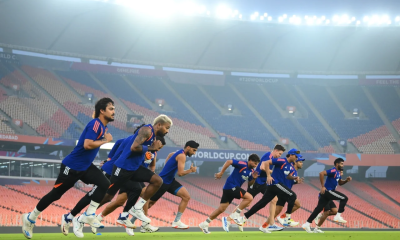
 Latest News7 days ago
Latest News7 days agoIndia, South Africa meet in the final before the final
-

 Features6 days ago
Features6 days agoProtection of Occupants Bill: Good, Bad and Ugly
-
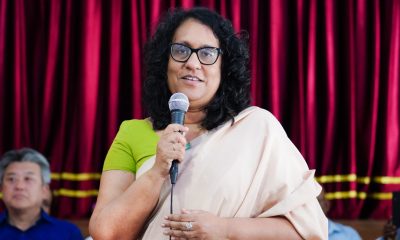
 News6 days ago
News6 days agoPrime Minister Attends the 40th Anniversary of the Sri Lanka Nippon Educational and Cultural Centre
-

 Business6 days ago
Business6 days agoHuawei unveils Top 10 Smart PV & ESS Trends for 2026
-

 News6 days ago
News6 days agoCoal ash surge at N’cholai power plant raises fresh environmental concerns




